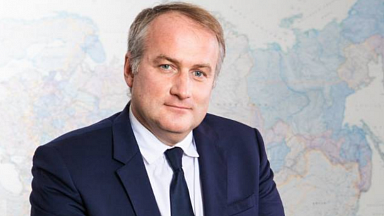Over August 22-24, the 15th annual summit of BRICS heads of state was held in Johannesburg, South Africa. During the event, the existing member countries agreed to accept all new members to the union. Furthermore, Russian President Vladimir Putin proposed an initiative to create a permanent transport commission, which would oversee not only the North-South project but also broader issues related to the development of logistics and transportation corridor development.
New solutions
As of January 1, 2024, six countries — Argentina, Iran, Saudi Arabia, Egypt, the UAE, and Ethiopia — will officially become members of BRICS. Against this backdrop, the initiative to establish a permanent transport commission was proposed at the event. It is expected that such a mechanism will be able to improve transport connectivity between BRICS countries and promote joint initiatives in the field of transport and logistics, including the development of transport corridors.
Vladimir Putin emphasized the need to address this issue. «We believe that it is time to establish a permanent transport commission within BRICS, which would not only oversee the North-South project but also broader issues related to the development of logistics and transportation corridors, interregional and global,» the Russian President noted.
According to him, the Russian side could work out this idea during its chairmanship in BRICS in 2024.
Over August 19-23, a delegation from Russian Railways (RZD) participated in the summit events as one of five representatives of the Russian Federation in the BRICS Business Council. At the company’s initiative, with the support of all national representatives, the council’s 2022-2023 report reflected the imperative for priority development of railway transport as the most environmentally friendly and reliable method.
In addition, an agreement was reached to form a railway transport subgroup, which, with the addition of new BRICS member railroads, could become an effective platform for coordinating joint work on innovation exchange, R&D efforts, infrastructure development, and personnel training.
Another promising area of cooperation is humanitarian projects, including the development of railway museums. The leadership of South African company Transnet expressed interest in RZD projects in this area, and representatives of Transnet Freight Rail (a division responsible for cargo transportation) participated in International Railway Salon XI of the 1520 Space PRO//Movement.Expo, held at the Railway Transport Museum in St. Petersburg.
Economic Union
«Today, Russia’s trade turnover with other members of the union is in excess of $230 billion. The economy of all union countries based on purchasing power parity is greater than that of the G7 countries, and the share of BRICS in the world’s gross domestic product (GDP) has reached nearly 26%, with a population of over 3 billion people. After the new members join the union, the total GDP based on purchasing power parity will reach 37%, and the population will be 46% of the world’s total,» said Argentine President Luiz Inácio Lula da Silva at a press conference following the summit. Moreover, after the new countries join, BRICS countries will account for 43% of global oil produced, according to World Bank data.
For Russian Railways (RZD), expanding the group means new prospects for cooperation. Today, railway transportation between Russia and BRICS countries (including the maritime leg) represents 40% of the company’s total foreign trade freight traffic, as noted by RZD’s first deputy CEO Sergey Pavlov, in June on the sidelines of the St. Petersburg International Economic Forum. Today, the railways of the union’s member countries account for over 60% of the world’s freight traffic (as reported by 1520 International).
Connecting Paths
In light of the evolving geopolitical status quo, Russia has reoriented its logistics chains to reliable foreign partners, including those which include BRICS countries. Today, Russia is working on the development of the North-South International Transport Corridor, as well as the Northern Sea Route (NSR).
A large-scale plan for the development of the NSR has already been adopted and is undergoing implementation with the construction of infrastructure, fuel terminals, port hubs for connecting with railway and road transport, and the expansion of the icebreaker fleet.
«In turn, the North-South transport corridor will connect Russian ports on the northern seas and the Baltic Sea with maritime terminals on the Persian Gulf as well as the Indian Ocean,» Vladimir Putin said. «It is expected that conditions will be created there to increase freight traffic between Eurasian and African countries. In addition, new production facilities as well as trade and logistics projects will be developed along the corridor,» the Russian Federation president concluded.



